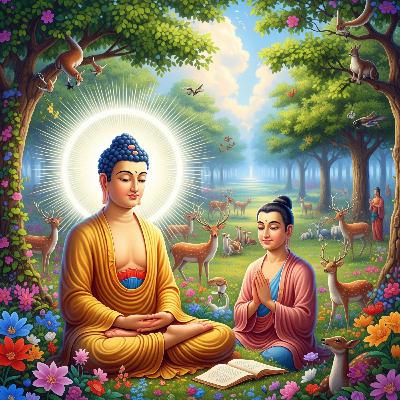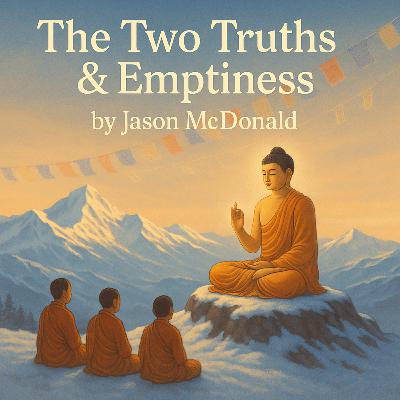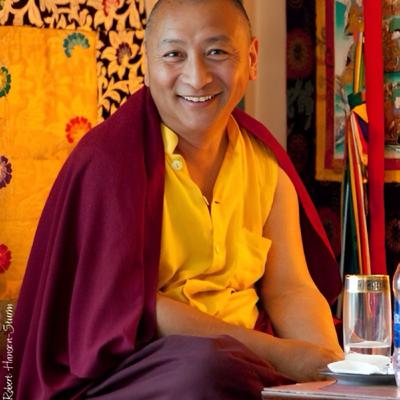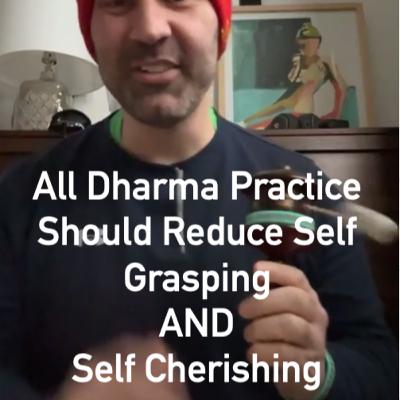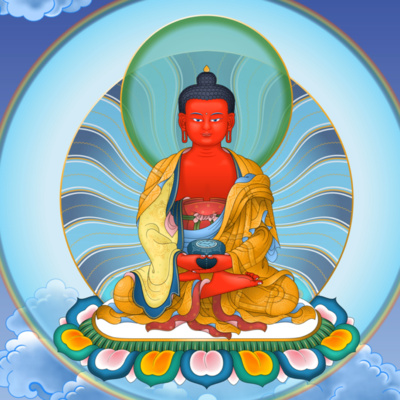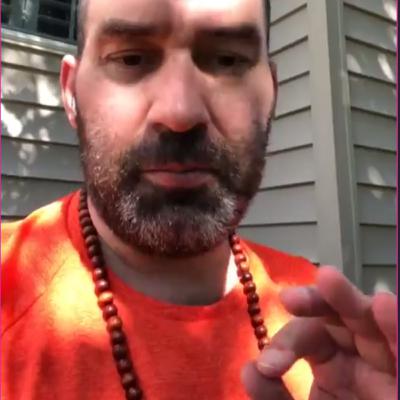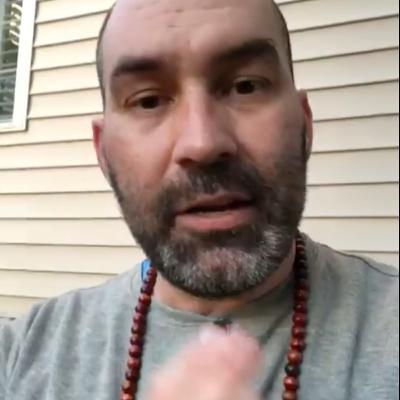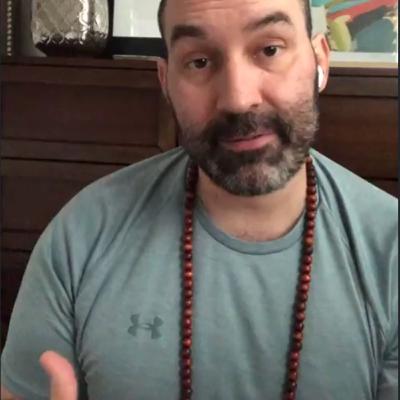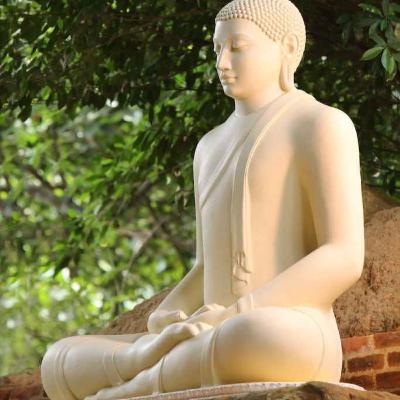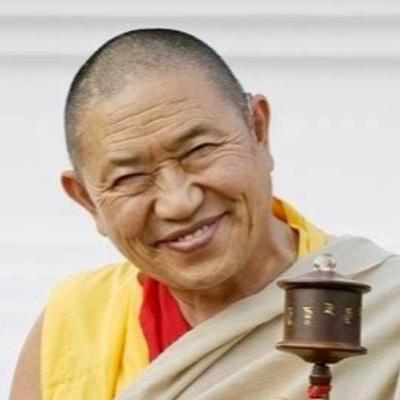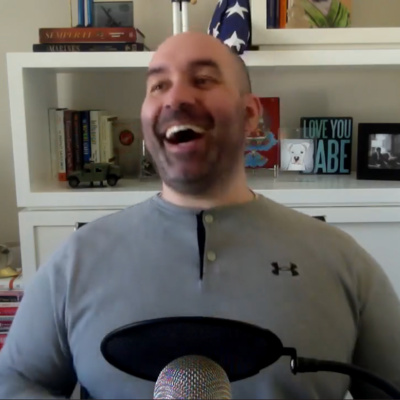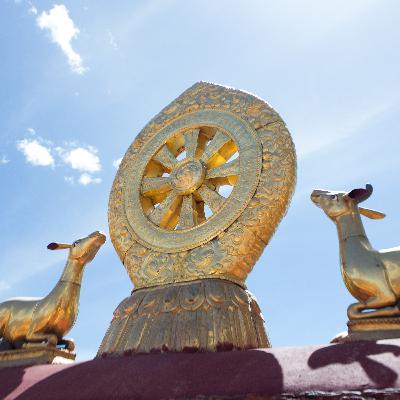Discover Tasting Infinity - Meditation and Buddhism for Everyone
Tasting Infinity - Meditation and Buddhism for Everyone

Tasting Infinity - Meditation and Buddhism for Everyone
Author: Jason McDonald
Subscribed: 12Played: 79Subscribe
Share
© Jason McDonald
Description
This podcast is dedicated to sharing Tibetan Buddhism and meditation techniques to help reduce anxiety, reduce stress, and help you reframe their thinking in order to be happier. I will not accept any revenues or money for these teachings. They are purely provided with the goal of helping reduce suffering in the world. To name a few of the topics that will be covered in this podcast, Tibetan Buddhism, Meditation, the 6 Paramitas, learning to let go, Loving Kindness Meditation, Compassion Meditation, Tonglen, Teachings on Emptiness (Shunyata), Karma case and effect, impermanence and many more
40 Episodes
Reverse
This Sutta of the Buddha's words is short and full of wisdom. In this Attadīpasutta, translated by Bhikkhu Bodhi, and available free on SuttaCentral.com, Buddha gives us clear cut instructions to reduce sorrow and lamentation.
In this episode, we explore a profound teaching from the Madhyamaka-Prasangika tradition of Buddhism: the Two Truths — conventional truth and ultimate truth.Conventional truth refers to how things appear and function in everyday life: emotions, objects, people, and experiences. These phenomena can help or harm us, so they exist — but only in a dependent, relative way. Ultimate truth, on the other hand, points to the emptiness of all phenomena — the fact that nothing exists independently or inherently. Things lack an independent self or essence; they arise in dependence upon causes, conditions, parts, and the mind that labels them.As His Holiness the Dalai Lama explains, this doesn’t mean things are totally nonexistent (which would be nihilism). Rather, they exist, but not in the way they appear. Everything that seems solid or independently real is, under closer analysis, part of an interconnected web of causes and conditions.The concept of dependent origination is central. A tree, for example, arises from a seed, soil, sunlight, and water — and is made of parts like roots, leaves, and branches. Remove any of those, and the “tree” cannot exist. Even deeper, a tree is only called a “tree” because we label it that way. Its identity is not found in any single part.There are three types of dependence:Dependence on causes and conditions (e.g., how events or behaviors arise from past influences).Dependence on parts (e.g., how a whole object exists only because of its parts).Dependence on conceptual designation (e.g., how things are named and understood by the mind).These layers show us that what we perceive as independently existing entities are actually mental constructions. Much like a movie appears real on screen, the world appears real and self-contained — but is, in truth, a projection of causes and labels.Importantly, this teaching isn’t just intellectual. It’s a tool to reduce suffering. Our negative emotions — anger, fear, pride — stem from grasping at things as solid and unchanging. When we realize their empty, dependent nature, our reactivity softens. We’re less quick to judge or cling.Emptiness, then, isn’t a void — it’s a liberating insight into how things really are: interconnected, ever-changing, and free of inherent identity. This understanding doesn’t negate reality — it enriches it, making space for wisdom and compassion to grow.
How do wild flowers grow without any effort? We could never replicate something so beautiful, yet we strive and suffer, and stress in our lives. By simply letting go, falling into the beauty of life, we can allow life to catapult us forward while maintaining peace and balance. This free dharma talk discusses how letting go is so rewarding.
This episode covers letting go, and provides specific ways we can let go. The following is covered
How the mind creates problems
How to let go
The forces against letting go
The benefits of letting go
How to practice letting go with mental labeling
In this commentary on 7 Point Mind Training by Bardor Tulku Rinpoche given in 2018, Lama provides us excellent ways to overcome negative mentalities and to increase positive mentalities like love, compassion, and kindness. All mistakes are my own. 🙏❤️ May all beings benefit. If you would like to read this podcast, here's a free PDF for you.
0:00-Introduction:
16:18-Point 1: First Train in the Preliminaries
23:26-Point 2: Cultivation of Bodhichitta, The Main Practice
53:25-Point 3: Bringing Adversity onto the path
1:13:24-Point 4: How to Summarize this and use it throughout your life
1:21:14-Point 5: How to Measure Your Mind Training
1:24:55-Point 6: The Commitments of Mind Training
1:37:04-Point 7: The Rules of Mind Training
Welcome to this video and podcast where we will be discussing the crucial role of reducing ego grasping in Dharma practice. If you're ready to learn about the transformative power of lowering self cherishing and increasing compassion, you're in the right place! Throughout this video, we'll delve into the ways in which reducing our grasping at an inherently existent self can lead to greater happiness for ourselves and those around us. We'll also explore the benefits of mastering these concepts, including personal healing, a sense of altruism, and overall well-being. So sit back, relax, and get ready to learn about the importance of reducing ego grasping in Dharma practice. Don't forget to like, subscribe, and share this video and podcast with your friends and loved ones!
If you find this podcast helpful, please be sure to check out my Youtube Channel Here
Check out my blog here
You may also like my free 13 week Course on Tibetan Mind Training available here
Here's the video. I strongly recommend watching the video so you can see the presentation:https://share.descript.com/view/ADEWbCDVvRZ or if you prefer YouTube, click here to see the YouTube: https://youtu.be/WFr_FrYYLzU
Episode 3- Free Dharma Talk Series: On 10/9/22, I experienced a violent head-on collision in a traffic intersection while driving my car. I will use this series to share the emotions, fears, and realizations I've experienced since the car crash.
Episode 2 - Free Dharma Talk Series: On 10/9/22, I experienced a violent head-on collision in a traffic intersection while driving my car. I will use this series to share the emotions, fears, and realizations I've experienced since the car crash.
Free Dharma Talk Series: On 10/9/22, I experienced a violent head-on collision in a traffic intersection while driving my car. I will use this series to share the emotions, fears, and realizations I've experienced since the car crash.
Everything Arises Dependently- So How Do
Many masters talk about letting go, but how do we actually do that?
If we set an ice cube in the sun, it will melt. Similarly, every problem in your life is already melting. Therefore, why worry about a problem that's melting away?
Teaching about the benefit of Bodhichitta and impermanence.
What if there was a single thing to lessen every type of suffering? Turns out there is. It's called Bodhichitta which is a wish to become a Buddha for the benefit of all sentient beings
Blog Post
Video
Transcript
Please click here to access the Root Text, my videos, Garchen's original videos, etc.
18 minute guided meditation for Ukraine. you can do this longer on your own, but this guided meditation provides a template of how to do it.
There are many benefits of compassion. This 24 minute podcast explains some of the benefits that arise from the practice of cultivating compassion.
This is a short 13 minute podcast about the 4th perfection, or 4th Paramita of Tibetan Buddhism which is Diligence or Joyous Effort.
Click here to see the blog post: https://tastinginfinity.wordpress.com/2022/07/22/6-perfections-6-paramitas-of-tibetan-buddhism-4-dilligence/, and be sure to listen the other 5-6 podcasts on the 6 perfections before you listen to this one :)
Last and final course of the 13 class Tibetan Mind training class.


